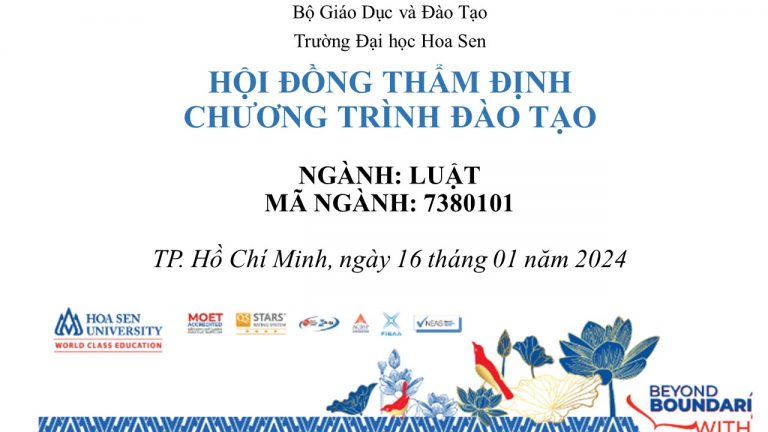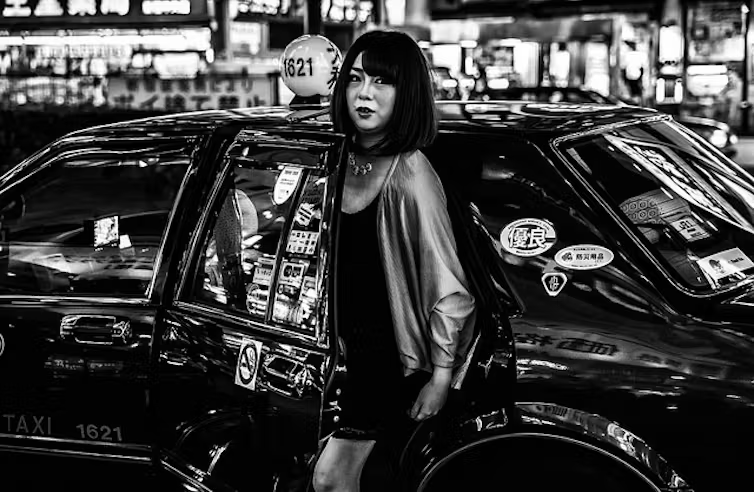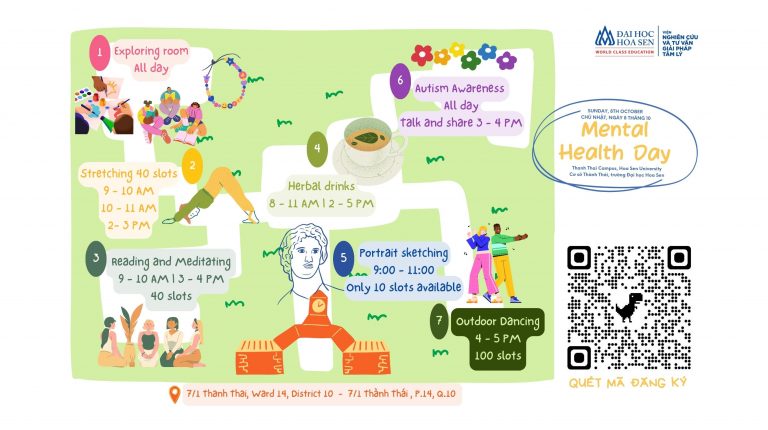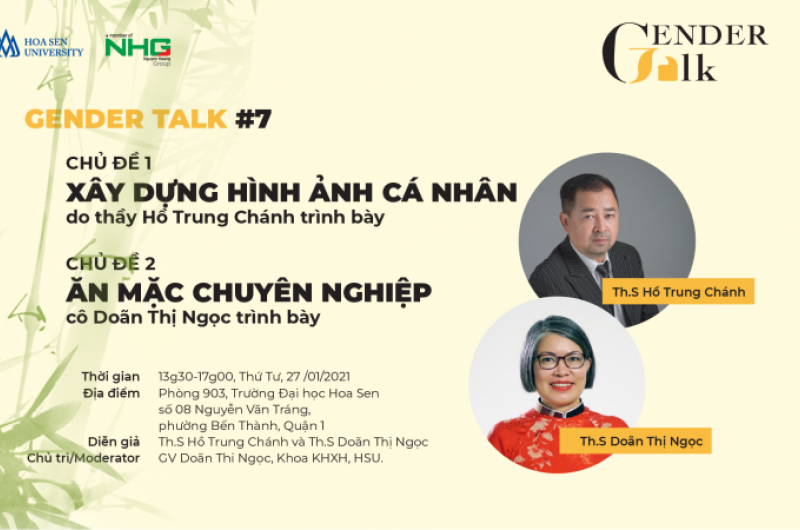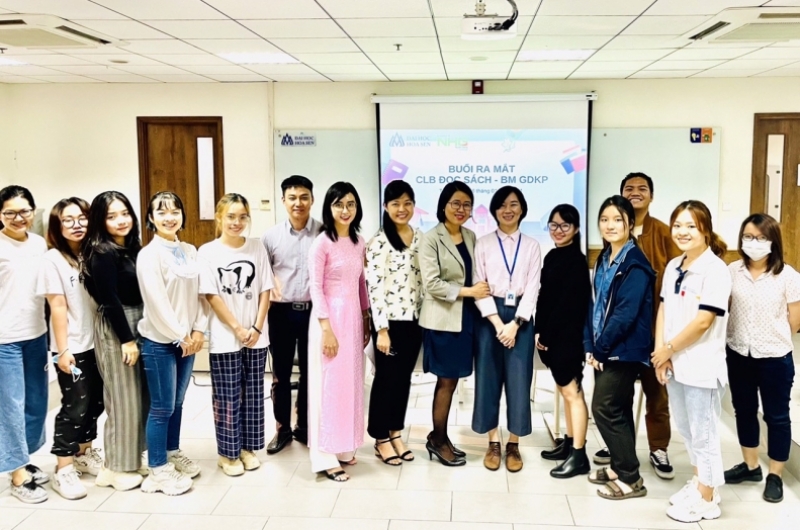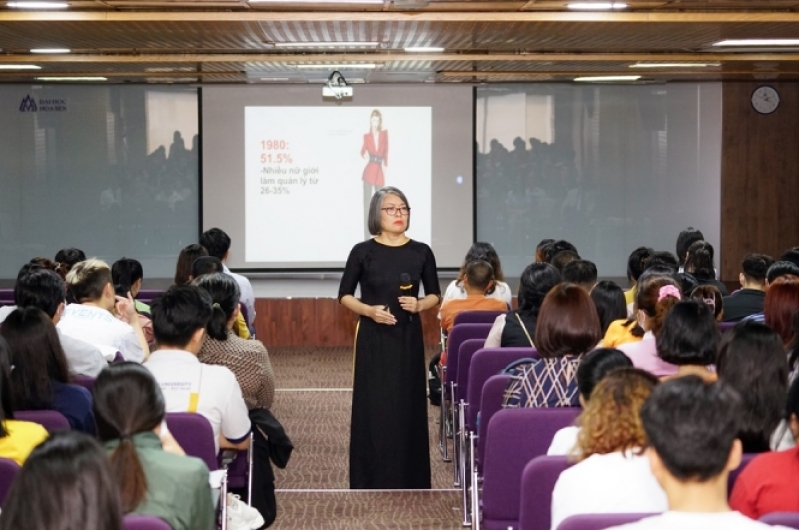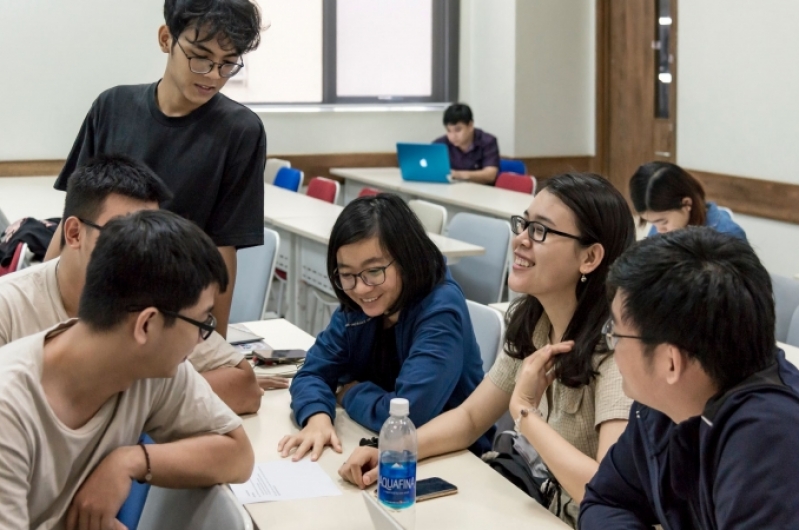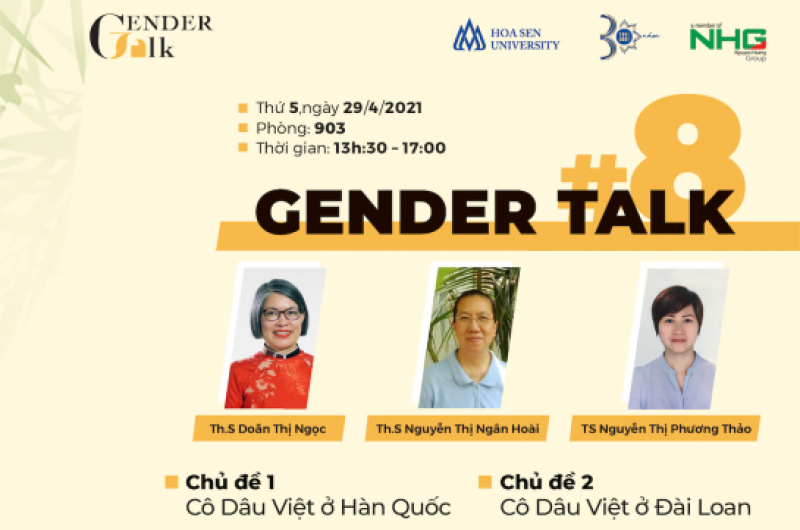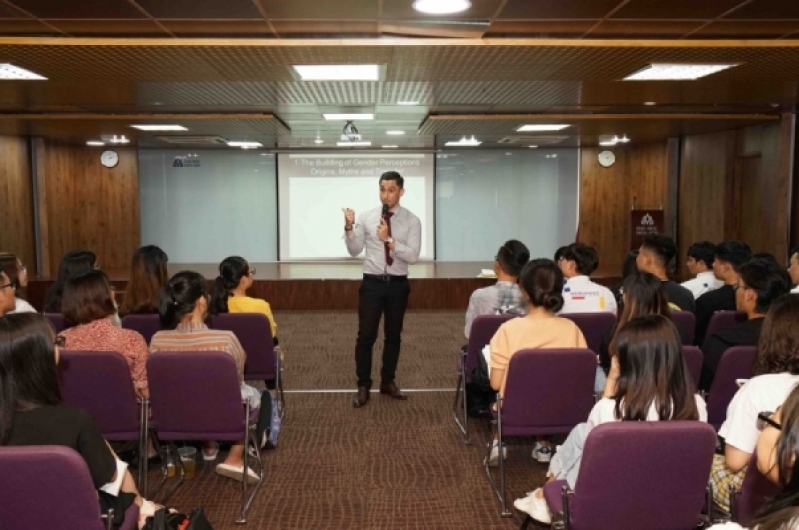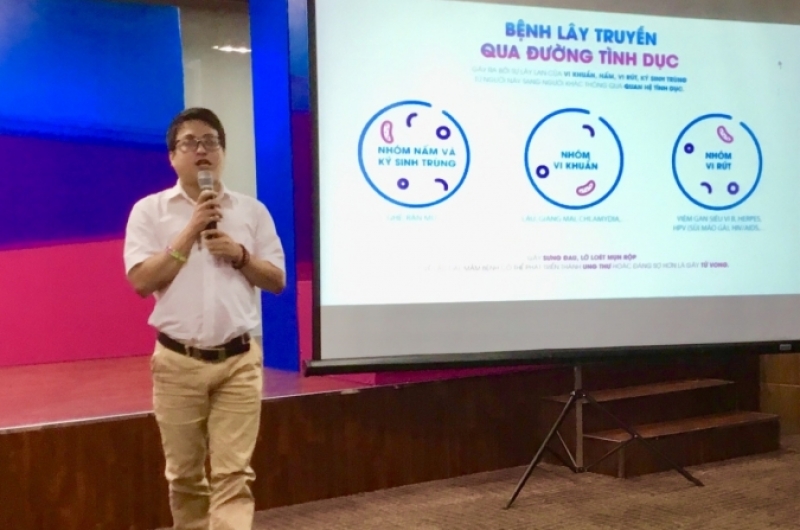Public Opinion about the Liberal Education Seminar
January 15, 2019
PUBLIC PERCEPTION ABOUT SEMINAR EXPLORING EDUCATION
The Liberal Arts Education Seminar, topic “Soft Power in the International System”, took place on Saturday morning, January 12, 2019, and received very interesting and profound opinions and shares from the public. The Department of Education and Training would like to present the following notes from Thai Thi Thanh Thao, a student at Ho Chi Minh City University of Education, and Mai Trang, a tour guide and commercial interpreter.
Department of Education
SEMINAR “SOFT POWER IN INTERNATIONAL RELATIONS”:
120 MINUTES OF SUCCESS FOR A NEW RELEASED MOTIVATION
THI THI THANH THAO’S FEELINGS
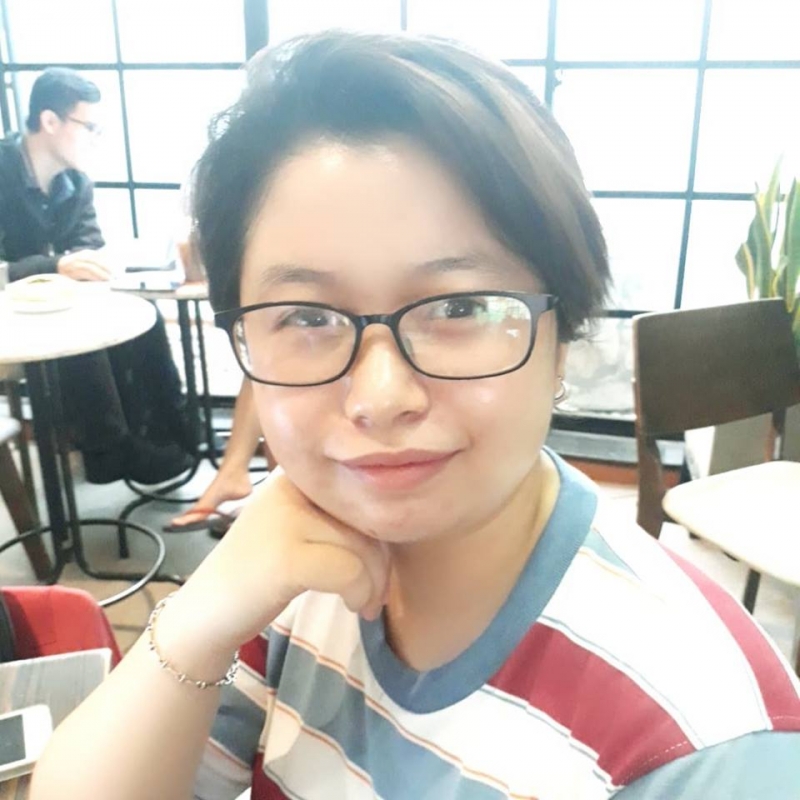
Thai Thi Thanh Thao – author of the article
The Liberal Education Seminar series is organized once or twice a month by the Faculty of Social Sciences of Hoa Sen University to serve scholarship and education, creating a space to share and debate issues. Urgent or interesting topics deserve the strategic attention of society. This December, I was fortunate to have the opportunity to attend a Seminar on the topic “Soft power in international relations” organized by Dr. Tran Nguyen Khang presented and led. A beautiful Saturday morning with a close working atmosphere and precious spiritual products after 120 minutes of meeting are unforgettable impression for the writer.
Coming to the Seminar, this writer fully received two goals of participation: listening and exchanging.
1. Listen:
After enjoying delicious tea and cakes, we continued to satisfy our listening and viewing needs from speaker Tran Nguyen Khang. A beautiful style, and a short but succinct introduction that opens the listener’s background knowledge about “soft power”, one of the sources of strength that determines the position and influence of a country. family. We were guided through the contents in turn: What elements does the strength (or power) of a country include, and on what basis can it be classified; How does the transition of power in the world take place; What is soft power, the value of “soft power” in the current world situation and relation to “hard power”; Ranking of countries that hold a high position in the use of “soft power”. In particular, besides a small amount of information that has been accessed, much of the rest gives us interesting, sometimes surprising feelings.
In the most summary way, this theoretical part condenses two important knowledge points: soft power is a term created by Joseph Nye, about hard power, which refers to the power to influence other subjects of a country through attraction and persuasion by national values, cultural characteristics, policies and institutions, not by coercion or coercion by the government. economic, military; Soft power can be transferred through cultural diplomacy and people-to-people diplomacy.
2. Exchange:
True to the spirit set by the GDKP Seminar series, the program spends 2/3 of the time on exchange and sharing activities from the attending audience. This is also the part that brings me the most excitement. Because thanks to the sharing of authentic experiences, my knowledge has been greatly enriched.
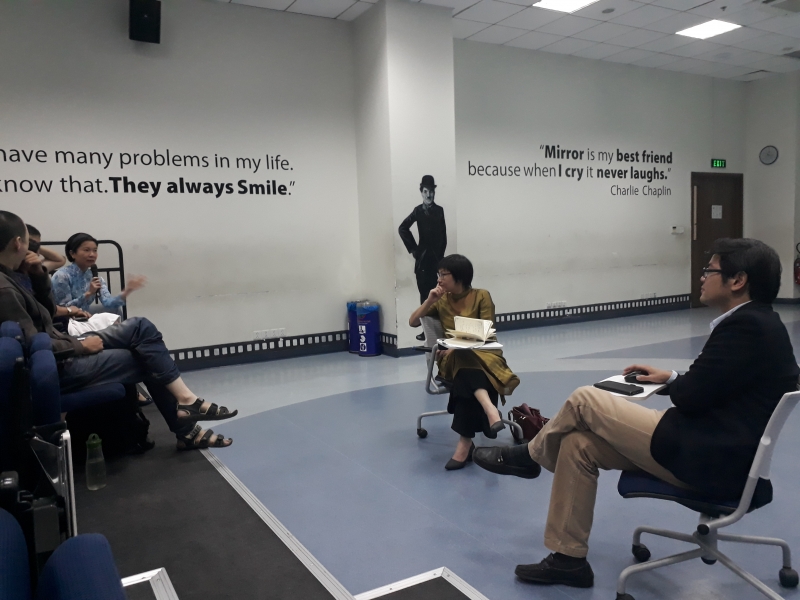
Listen and discuss at the GDKP Seminar
What did we share and exchange with each other?
Which country is typical for exploiting soft power?
USA, China, Japan, France, or Korea,…? Each individual’s opinion reveals their impression of a country they love, and vice versa, the degree of impact on the consciousness of another nation in the strategy of using soft power. of each country.
Soft power is present not only in the spiritual values that a country builds but also in the way it promotes national culture to the world.
France, Japan, Belgium, and Singapore are examples used to demonstrate the influence and impact of a country’s unique universal image on the world, symbols that even turn into illusions. statue, somewhat distorting the objective image of that place: When coming to France, you must meet and take photos of the Eiffel Tower, when you go to Belgium, you must see the Manneken Pis statue with your own eyes, and when you come to Singapore, you cannot forget the Merlion statue. country, Japanese women and women in Manga or French men’s view of Japan and women from this country. In particular, there is an opinion that Vietnamese tourism needs to pay attention to the images chosen to promote the country, for example, we should review the images of mothers with faces full of crow’s feet, we invite international attention to the image of a Vietnam with traditional and modern values or call for pity from them? (Dr. Nguyen Thi Tu Huy).
Confucius Institute – strategy to build soft power or the spread of “soft outside – hard inside” of China?
China is aiming to expand the influence of Confucian culture through scholarship and education but is facing certain difficulties. From his experience in contact with the Confucius Institute located in the United States, Dr. Hoang Phong Tuan shares from my direct observation, that the Confucius Institute at the University of Oregon (University of Oregon, USA) focuses on material sponsorship and database building, I don’t know about other control policies. mention. Speaker Nguyen Khang said that the nature of a country’s soft power takes a long time to create trust and prestige in the international community. An example is Japan after World War II, it took a very long time to rebuild its reputation in the international community. And today, it has become a country that represents Asian soft power in the world. China’s Confucius Institutes need to create trust in the international community through truly positive cultural exchange activities because several Confucius Institutes have been closed in many places after several years of operation. Dr. Tu Huy asked if the reason is because the Confucius Institute is not an institution of soft power, but still uses methods of hard power such as bribery, and propaganda …
South Korea – a special case that needs attention in terms of using soft power as a strategy in national shaping and a lever to promote cross-sectoral development:
The influence of Han Luu culture is the success of Korea’s strategy of using soft power, they selectively export the national image (Dr. Thanh Nghi), and they researched and conducted the article. their cultural promotion campaign, including who the target audience is and what their aesthetic tastes are, thereby determining the form and content used. This is clearly shown in the cultural dominance. Korean culture and art in most of the world (Thanh Thao – a participating student), young people are naturally passionate about Korean country and culture, my daughter wants to learn Korean and participate in Korea’s entertainment industry, I realize the sophistication of how the country’s culture creeps into us (Another listener’s opinion)
Most importantly, what are Vietnam’s soft power and our next actions?
Ambiguous tourism slogans represent the gap in Vietnamese people’s perception of their own identity. Honestly, we cannot deny the influence of an event that, although painful, has left a deep impression on foreigners: the Vietnam War. The tenacious spirit that shook the earth after an unequal war is an important factor that deserves to be exploited more diversely, but also with less bias. The Vietnam War cannot stop as an attractive topic that is constantly being adapted, especially popular in the field of art, fixed by a certain perspective, even Western, but needs to be looked at. recognized as an outstanding cultural and spiritual focus that needs to be restored in the minds of modern Vietnamese people.
Activities to spread Vietnamese cultural images are being exploited and built with the cooperation of foreign professional teams, should they or not? That is an inevitable trend because quality should come from professional organizations, this is quite common today (Dr. Hoang Phong Tuan), however, foreigners can provide technical support, but they Do we understand Vietnamese culture deeply enough to choose content that helps reveal the deep layers of this culture, or is it necessary to have the participation of cultural scholars about Vietnam? (Dr. Tu Huy)
We need to learn the sophistication and vision of Koreans, Japanese, and Americans in integrating national culture into mass products. We have not prepared the real value foundations before promoting them, leading to disillusionment with the virtual when tourists come into contact with the real national situation. This is complicated because it stems from the lack of educational philosophy to create the spirit of unification of an entire nation (Thanh Thao – participating student). So the profound solution comes from education to change the consciousness and ideology of the Vietnamese people.
Optimistic perspectives for the future:
The seminar ended with a sharing that perhaps building Vietnam’s soft power will put the responsibility on the shoulders of the younger generation. An audience member, with a proud and confident attitude, said that the young generation has been changing in acting with realistic goals towards the community and trying to oppose formalistic behavior: My daughter refused to take many photos when participating in a volunteer program even though I asked to do this to beautify her scholarship profile. I was startled when she said that the purpose of this is to help others, not You don’t have to promote your image. I’m very happy about that.
Ho Chi Minh City, January 12, 2019
Thai Thi Thanh Thao
FEELINGS ABOUT SEMINAR
“SOFT POWER IN INTERNATIONAL RELATIONS”
OF MAI TRANG
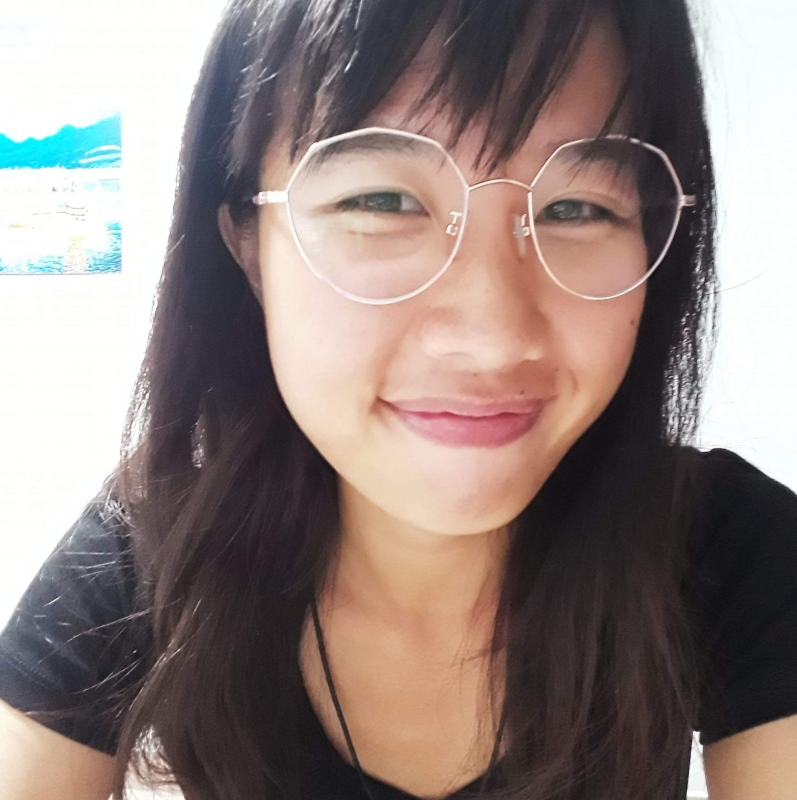
Mai Trang – author of the article
“Have you drank coffee yet? Let’s go out and have some coffee before we start,” said the woman, whose name I later learned was Tu Huy.
“But it’s already 9 o’clock,” another voice from the audience replied. I chuckled. So we will be discussing with a group that has many strict standards soon. From the moment I heard about Hoa Sen University after reading about the news of shorts professor Truong Nguyen Thanh, I was not surprised by the arrangement and layout of the space as well as the messages that evoke the creative spirit here. “Not much like a university in Vietnam,” I thought. Or maybe I was too slow as the academic world is changing every day.
Pulling two chairs together, Khang, the main speaker of the sharing session on soft power in international relations, sat opposite Tu Huy and immediately changed the space into a dialogue between researcher and actor. fake. As part of an experimental liberal education series, I was curious to see what the speaker’s approach would be. When the space opens to the public, the filter of expertise no longer exists. The gap in knowledge between the two sides both creates openness and evokes many challenges, but perhaps resembles the liberal spirit that the name “liberal arts” evokes.
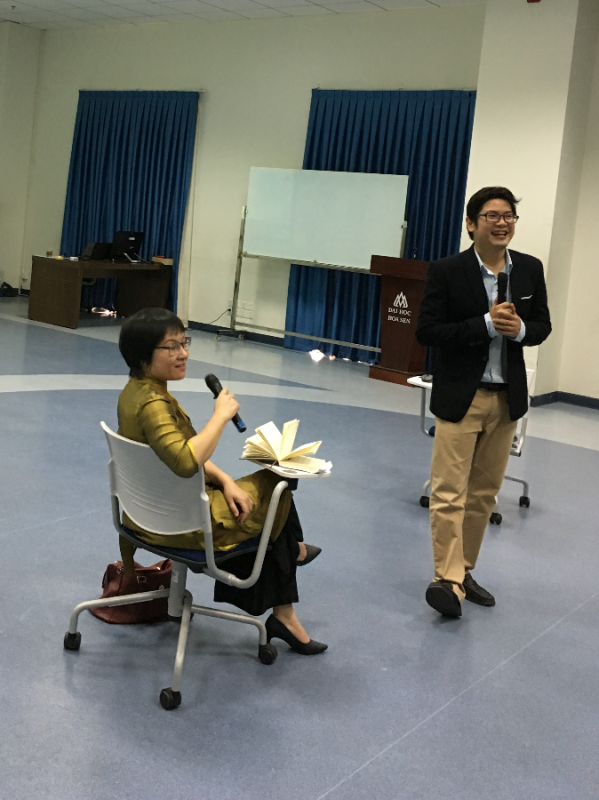
Starting with the concept of “power”, Mr. Khang chose to go from the most basic definition and gradually narrow it down, digging deeper through factors and case studies. This seemingly macro and huge issue becomes closer than ever when the audience shares why a small hobby of a specific individual leads to big decisions later. “My daughter likes Korean music, and may choose to major in Korean studies,” one listener shared. Those seemingly specific, random decisions are part of the influence strategy of countries on a global playing field, but we have not yet fully felt it. The Hallyu wave, the Confucius Institute, and how Vietnam brands itself in tourism have been hotly discussed.
If there’s anything I learned from this session, it’s probably that when we study a problem deeply enough, we’ll see it collide with other problems. Perhaps that is the driving force of sharing and dialogue to enrich the perspectives that are intertwined like spider silk in this global era.
Mai Trang (May)
Freelance travel guide/ business interpreter/ blogger

